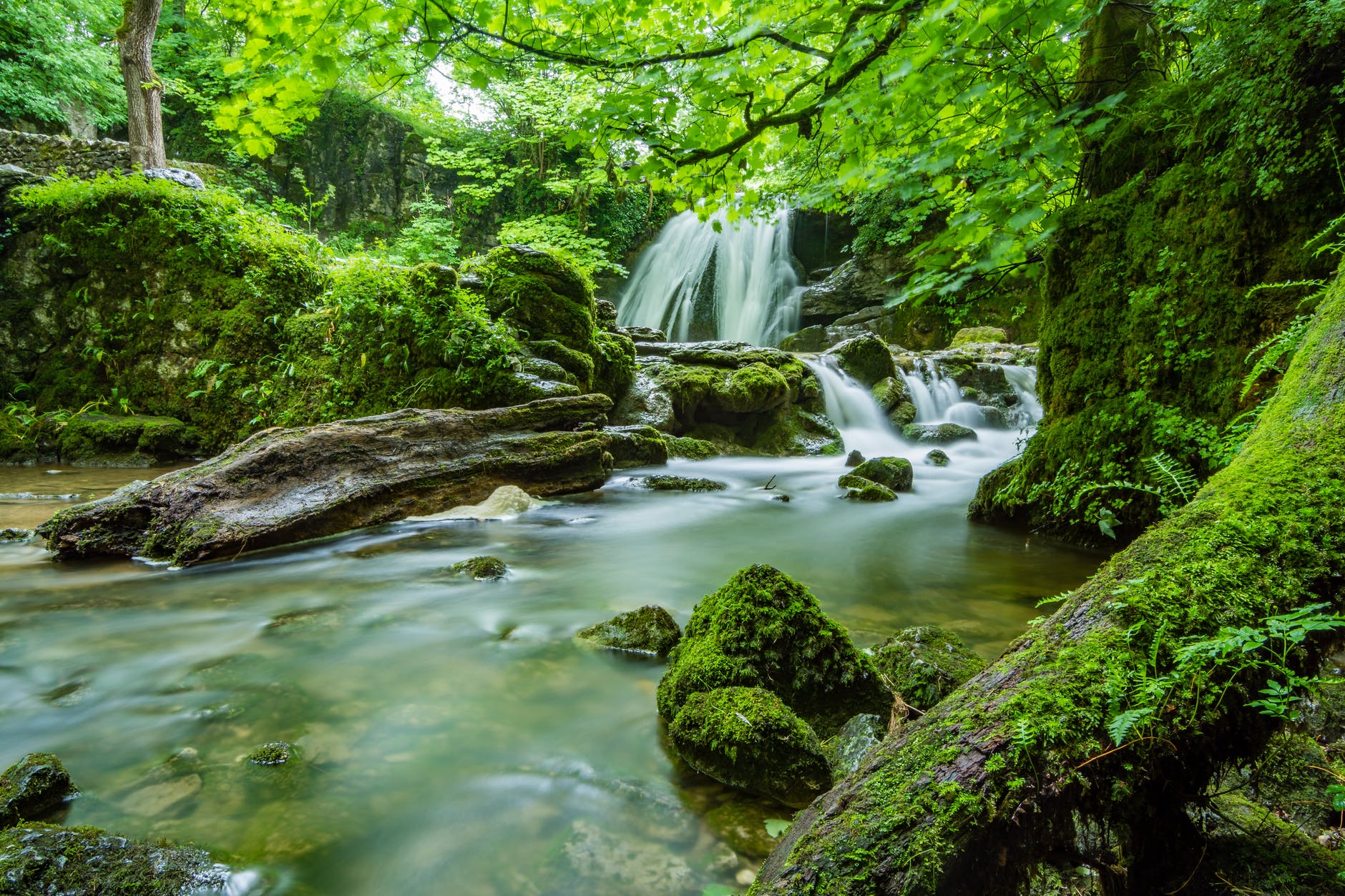Written by Isaac Hansen, Conservation Transaction Specialist
Driving through the Klickitat Valley is an experience of rolling alfalfa fields stretching all the way to the horizon.
Source: Google Street View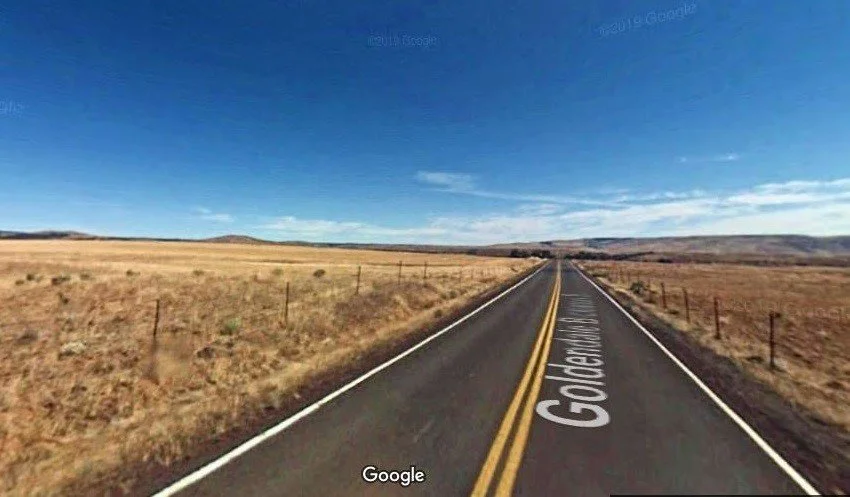
Source: Google Street View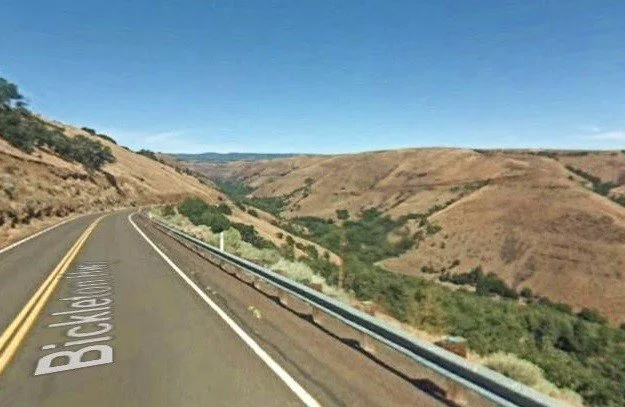
As I followed Nick Altadonna (TNC’s Eastern Washington Stewardship Coordinator) around a sharp curve, I let out an audible gasp. The landscape had changed dramatically to reveal a canyon covered in trees, in sharp contrast to the golden plains that were in sight moments ago.
The road drops down into the canyon and crosses Rock Creek, the namesake of the preserve that was also our destination. Much of the land that makes up Rock Creek Preserve was acquired in the 1990s and early 2000s in order to protect vibrant oak-pine woodlands, deciduous riparian habitats, cliff-talus slopes, along with stretches of critical aquatic habitat in the creek itself. The green speckling along the canyon revealed itself to be hundreds of Oregon white oaks and ponderosa pine, teeming with wildlife.
A LAZUL bunting perches in an oak tree at the Rock Creek Preserve. ©Keith Lazelle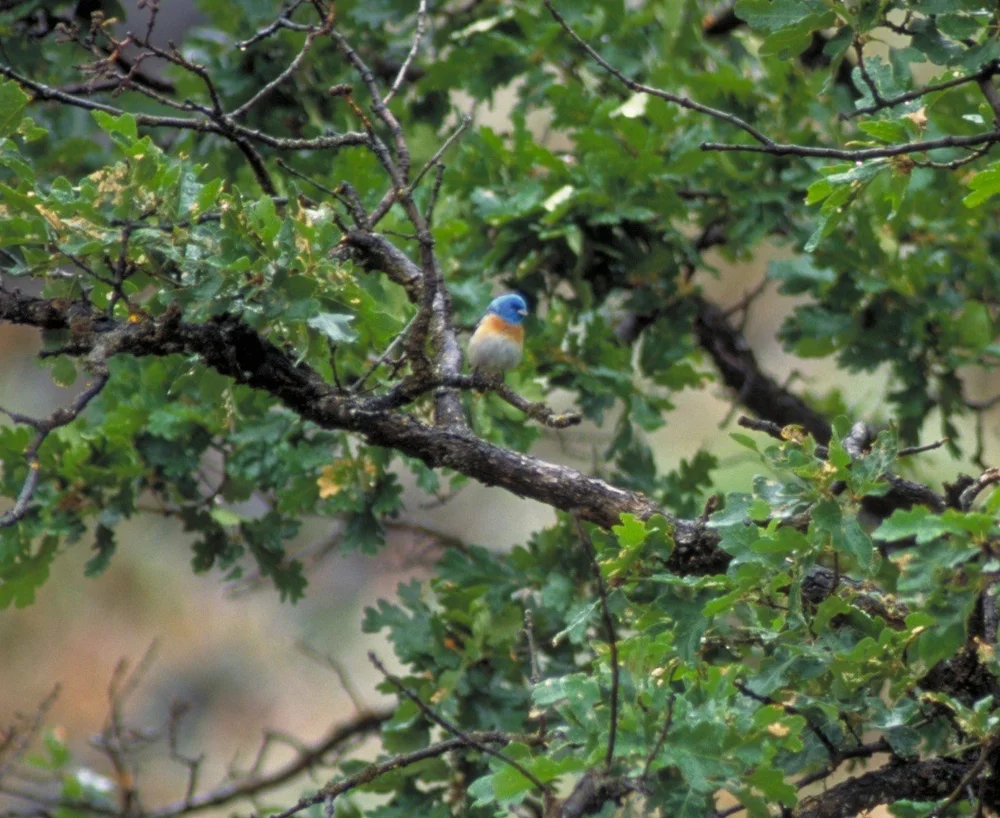
On this September day, Nick and I meandered through the oaks to a 55-acre parcel owned by local cattle rancher Dave Davenport. Although we had never met in person, I learned through our many phone conversations that Mr. Davenport holds a deep appreciation of this unique place. His hope in engaging with TNC was that the land would be stewarded in perpetuity because, in his words, “it’s worth keeping natural!”
WHITE OAKS in the foreground contrast with the formations of columnar basalt and golden grasses. ©Isaac Hansen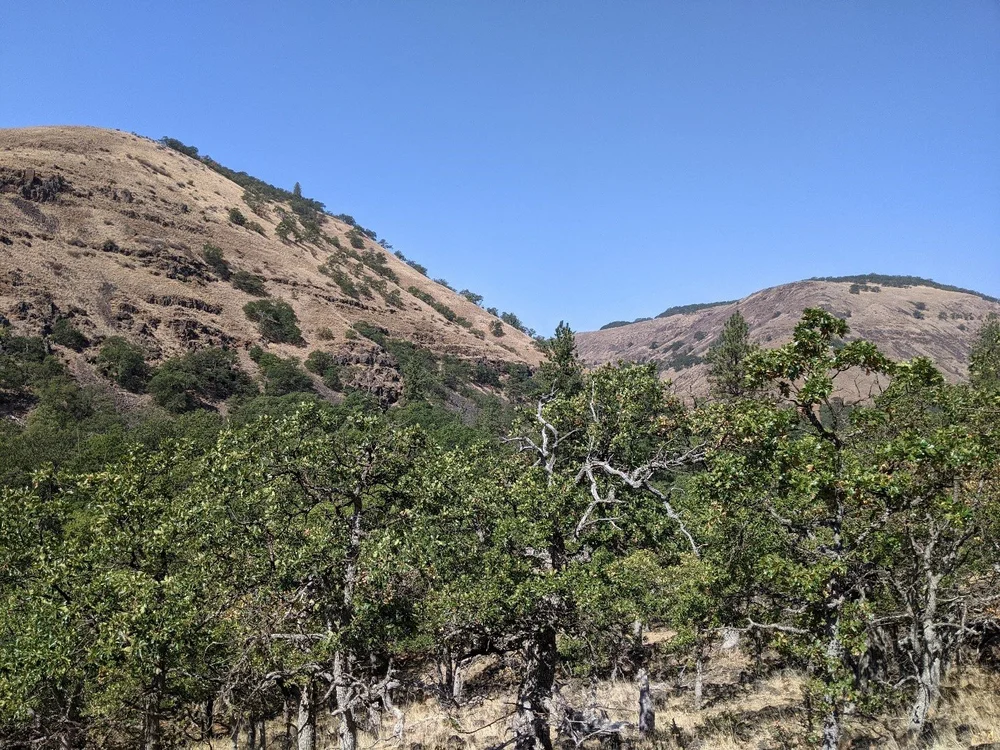
In recent years Klickitat County has been trending toward increased residential development, large vacation wineries, and intensified agriculture, so finding opportunities to bolster the resilient and connected network of conservation lands is as important as ever. This 55-acre acquisition gives the Rock Creek Preserve a more contiguous stretch of habitat and strengthens the landscape scale conservation efforts of nearby tribal, federal, state, and private landowners.
MAP showing acquisition relative to adjacent Rock Creek lands. Created by Erica Simek Sloniker.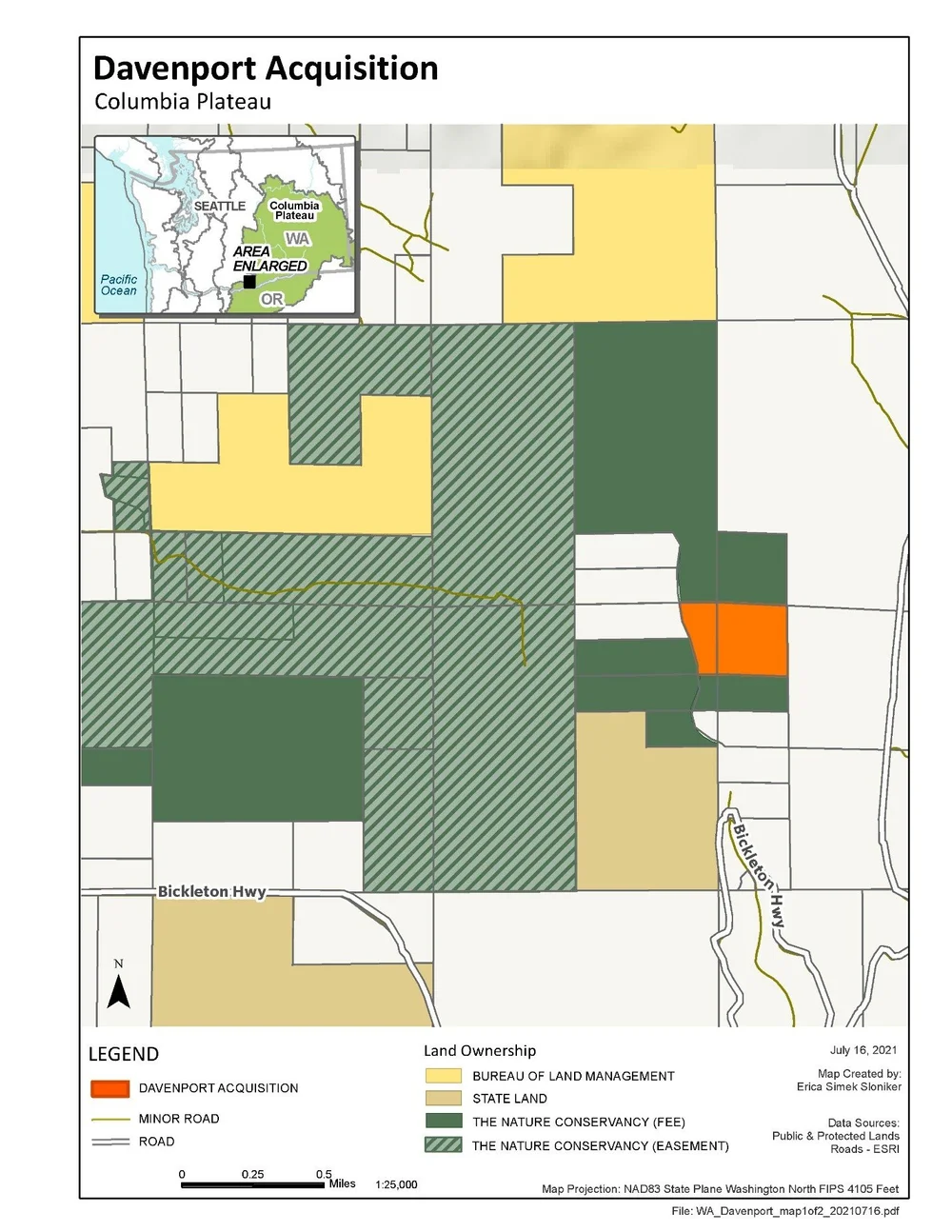
It is important to remember that the people of the Rock Creek band of the Yakama Nation have stewarded this land since time immemorial. The property lies within an area ceded by the Yakama people to the federal government under the Treaty of 1855, which allowed Yakama tribal members to continue to conduct their “usual and accustomed practices” across these lands. The Washington business unit of TNC is working to build authentic, lasting relationships with Indigenous communities in this area, and in all areas that we work.
AN OREGON WHITE OAK, canyon side at the Rock Creek Preserve. ©Keith Lazelle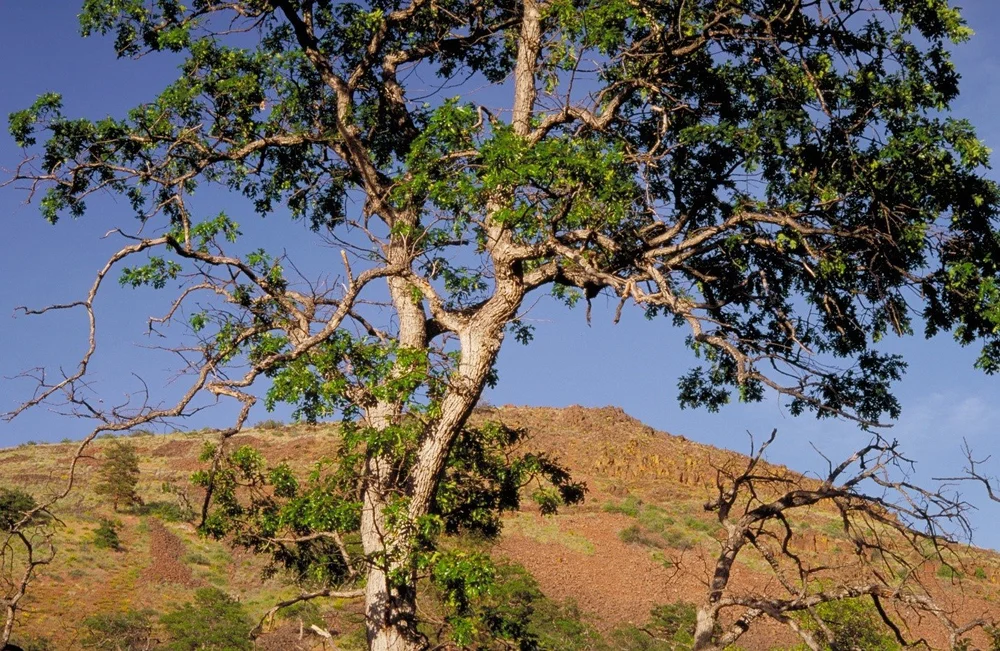
So many people across the chapter contributed time and energy to this project. The Stewardship team provided crucial input during all stages, Legal staff navigated a technical closing, Philanthropy has been working tirelessly to secure donor support, Finance helped tailor the budgets, and the Executive Team brought perspective on our broader strategy. Thanks to all this hard work, The Nature Conservancy celebrates another conservation win!
